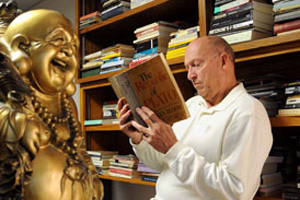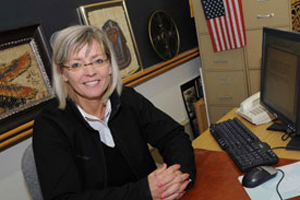What you should know: Philosophy

 Philosophy is universal and inescapable.
Philosophy is universal and inescapable.
Everyone has a philosophy. Everyone has views about reality, truth, right and wrong, happiness, etc. The question is, is this philosophy plausible, is it true, is it defensible … or is it merely the set of beliefs that one has inherited from one’s culture, from one’s parents, from one’s peers, and so on? There are those who deny that philosophy is necessary or even desirable. That is their … philosophy! Notice: they have not escaped philosophy.
 Ultimately, philosophy is wisdom or enlightenment.
Ultimately, philosophy is wisdom or enlightenment.
Without wisdom, without enlightenment about life’s most important questions, one’s life is lacking in defensible direction and authentic purpose and meaning. Yet very many people falsely believe that their life is on the right track. But the right track is one that conforms to the facts about this world, that is guided by the best available evidence, that respects and is guided by the wisdom grounded in a rational and defensible philosophy.
 Philosophy teaches that skepticism is often of more value than belief.
Philosophy teaches that skepticism is often of more value than belief.
Critical thinking about such important subjects as right and wrong, happiness, meaning, religion, politics, science, etc., is at the heart of philosophy. Socrates famously and wisely said, “The unexamined life is not worth living.” Yet many people do not seriously examine or criticize their cultural beliefs, including their ethical, political, and religious beliefs. They often lead unenlightened lives, resulting in ignorant and indefensible views. This conflicted, confused, and war-filled world is one of the results.
 Philosophy begins with a hero—a great person–and is full of such persons.
Philosophy begins with a hero—a great person–and is full of such persons.
A great deal, though not all, of philosophy is the history of philosophy. That history is filled with outstanding people, such as Socrates, the father of philosophy, his student Plato, Aristotle, Epicurus, Descartes, Spinoza, Hume, Kant, Hegel, Mill, Marx, Nietzsche, Einstein, Dewey, Sartre, Russell, and many others. The study of their lives and their great books is central to philosophy.
 Philosophy leads to “salvation” and to happiness.
Philosophy leads to “salvation” and to happiness.
Many believe that “salvation” and happiness is something gifted to them. But the truth is we save ourselves. By being skeptical, by questioning what we have been taught or told, by critically examining and thinking for ourselves, we discover the truth and we create the meaning of our lives. True happiness comes from living critically-examined, self-chosen, authentic lives. It certainly does not come from simply and mindlessly absorbing the beliefs of one’s country, or parents, or priest or pastor, or even of one’s teachers. The great German philosopher Immanuel Kant correctly stated that the essence of enlightenment is captured by the following motto, “Have courage to use your own reason.” The motto of philosophy could be the same. The likely result is “salvation” … and happiness.



